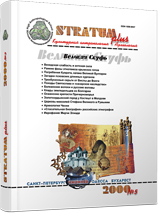Искушение «волошским орехом», или Балканские волохи и русские волхвы
Tempted by “Nux Gallica”, or the Balkan Wallachians and the Russian Magi
Author(s): Roman A. RabinovichSubject(s): History, Anthropology, Social Sciences, Archaeology, Cultural history, Middle Ages, Cultural Anthropology / Ethnology, 6th to 12th Centuries
Published by: Издательский дом Stratum, Университет «Высшая антропологическая школа»
Summary/Abstract: To oppose dominating theories of Thraco-Romanian ethnic origin of the Wallachians (“Carpathian” and “Balkan” and their multiple synthetic and local varieties), the author advances a hypothesis that the Wallachians, a medieval ethnicity known as the closest ancestors of the modern Romanians, Moldovans, Moravian Vlachs and other east-Roman nations and ethnographic groups, were not originally autochthonous people in the Carpathian-Balkan region, but rather came here from the Eastern Europe in the epoch of the Great Migrations. The research relies on analysis of numerous Greek, European Latin, Old Russian and Oriental written records, while special attention is paid to evidences of those medieval authors, who are known to scholars, but who are traditionally ignored, because they contradict theories of Traco-Roman and Celtic-Roman origin of the Wallachians. The essence of the advanced hypothesis may be reduced to the point that the Wallachians are foreign to the Carpathian-Balkan region, and in this regard they join numerous migratory peoples who happened to be in this region in the early medieval period – the Slavs, early Bulgarians, Hungarians. But like in the case of other migratory peoples, not every one of the Wallachians had moved to the west. The remaining Wallachians in the Eastern Europe faced their own different historical destiny. We know their descendants in the early Russian period from various written records where they are called volkhvy (the magi), in the Russian literature, blokumenn (in Scandinavian literature), ulah (in Oriental literature), etc. The volkhvy had to play a very important role in the history of the Old Russia where, as the main pillar of paganism, they conducted a ferocious fight against the Kiev knyazs, who wanted to force Christianity into the country. The essence of this hypothesis has conditioned the structure of the paper – two main chapters dedicated to the history of the Wallachians in the west and in the east in perspective of the hypothesis advanced by the author. The third chapter attempts to outline searches for ancestors of the historical Wallachians (connections of the Wallachians’ origin with the Celtic-German world on the turn of eras), as well as to consider and to coherently combine evidences of all so far known written records in one reconstruction of the early Wallachians’ history. The fourth chapter treats the issue of date when the Wallachians first appeared in Moldova. Based on the analysis of the available written records, the author makes conclusion that one can assert existence of the Wallachians in this region only as early as XII-XIII c.; there is no evidence to prove their existence here in an earlier period. The key-note of the paper is the author’s idea that any answer to the issue of the ethnic genesis and the early history of the Wallachians shall always remain only a reconstruction due to scarce and fragmentary data; in other words, it will always remain only a hypothetical construction, more or less grounded but always debatable.
Journal: Stratum plus. Археология и культурная антропология
- Issue Year: 2000
- Issue No: 5
- Page Range: 262-390
- Page Count: 129
- Language: Russian
- Content File-PDF

